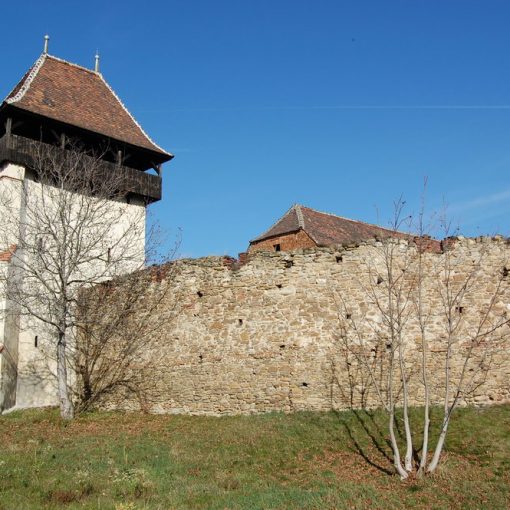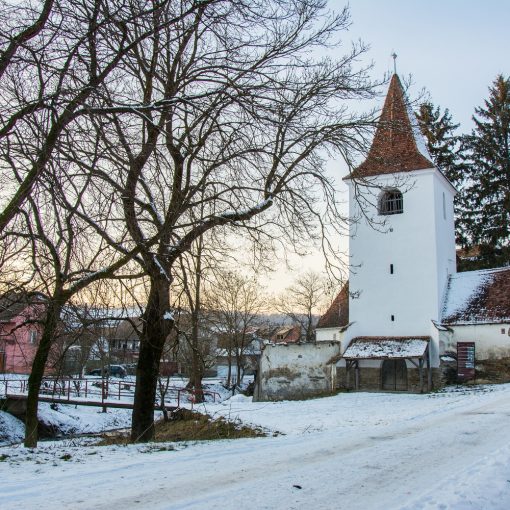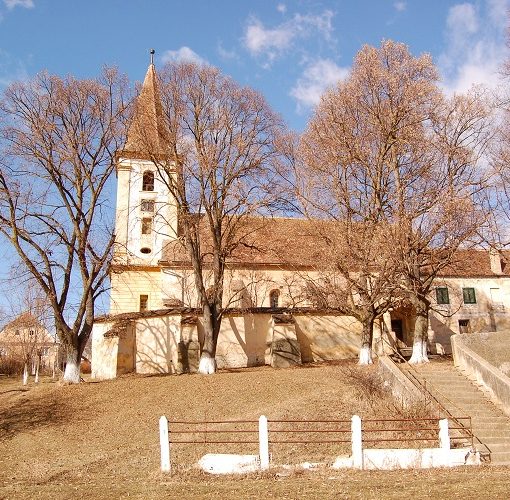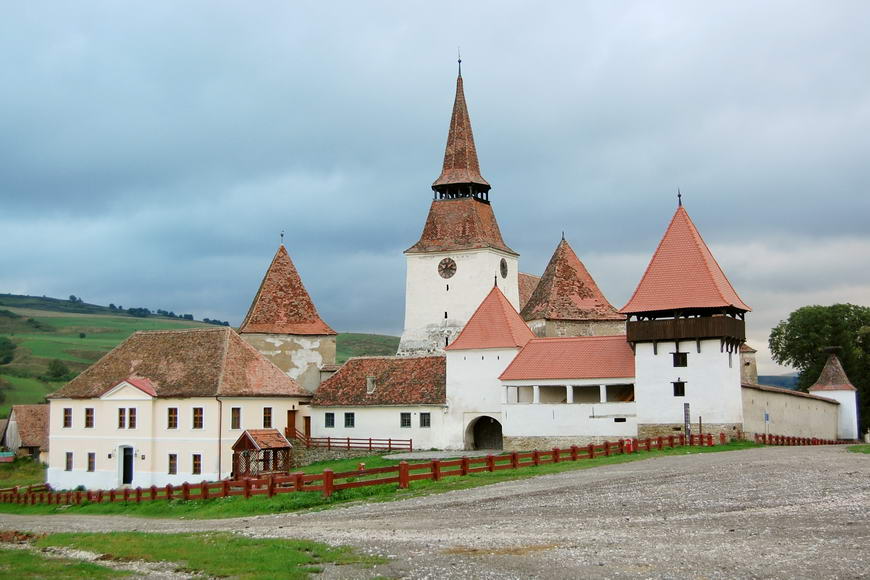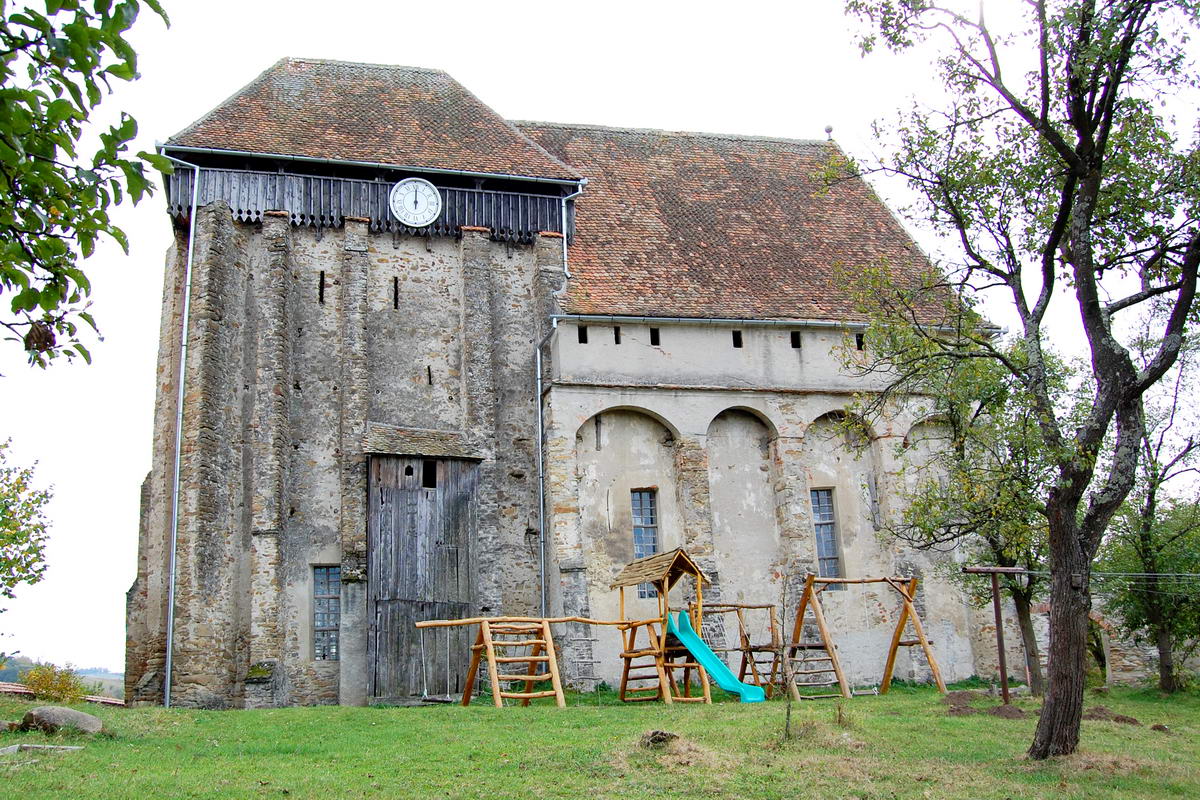
Although almost nothing of the fortification has been preserved, the church of Seliștat impresses as an example of an almost unaltered fortified church of the early 16th century. Situated on the top of a hill on the high plateau between the valleys of the river Hărtibaciu and Olt the one-aisle church without tower is said to have been built as early as the second half of the 14th century, probably on the site of an earlier building.
Around 1500 the chancel was strengthened by adding buttresses, four more stories, and a wooden battle platform. Later the nave was fitted with a barrel vault and a defence level built of bricks and stones. Loops for pouring liquids were left between the buttresses and the wall of the church. Another defence building serving for storing grains has been preserved on the northern side of the site.
On the southern side three more buildings were erected: Old and New School and the communal hall, today used as a youth hostel and community center. The modest interior of the church was renovated in 2010.
Place and surroundings
The name of the village points out that here must be a bit of paradise: as one of the oldest Saxon villages of Transylvania, the village was named once “Felix locus,” Latin name roughly meaning “happy place”. In the 15th Century the church was rebuilt as an impressive defensive assembly, which has been preserved almost intact until today. Battlements and loopholes of the fortress still seem alarming. However, there is no reason to worry: once it was built as mediator between God and humanity, then it became indispensable as a shelter for the inhabitants and nowadays is part of a youth community center.
In Seliștat children, adolescents and adults have the opportunity to enter another world and to take a trip into nature. A wide range of recreational and leisure activities is available to guests: sleeping in the fortification, visiting traditional farmhouses and chalets, trails in the nature, horseback riding in summer and magical horse-drawn sleigh rides in winter.
Activities
- 2014-2020 EU-financed restoration project of the fortified church
Contact:
Ev.Parish Făgăraș
Tel.:+40/268/211 994

